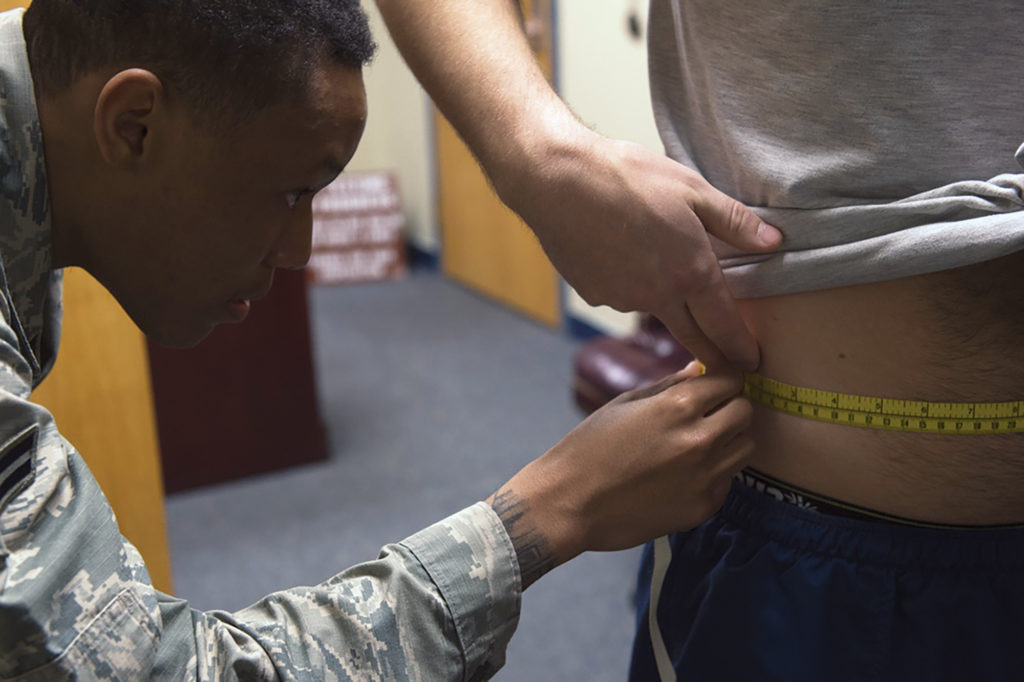The Air Force’s New 12-Week Parental Leave Policy
By Greg Hadley
Airmen and Guardians may now take up to 12 weeks of paid parental leave under the Pentagon’s new Military Parental Leave Program (MPLP) as a result of a change authorized by Congress a year ago and effective Dec. 27, 2022.
The new policy covers births, adoptions, and long-term care requirements for new foster children.
Under the prior policy, in place since 2018, a new child’s primary caregiver could take an additional six weeks of leave after convalescent leave, while the secondary caregiver could take three weeks. The new leave policy doesn’t put a specific time frame on convalescent leave, instead leaving it up to the recommendation of the birth parent’s health care provider “to address a diagnosed medical condition.” Convalescent leave begins the day after the new child’s birth, or after the birth parent is discharged from the hospital, whichever is later.
After that, both primary and secondary caregivers have a year to take their 12 weeks of leave, which may be taken in increments of seven or more days, and need not be taken all at once.
The new policy, now more in line with other federal guidelines, aims to help retain and attract talent.
As long as a service member had unused caregiver leave as of Dec. 27, they’ll be allowed to take the full 12 weeks of leave. So if an Airman had completed two weeks of secondary caregiver leave as of Dec. 27, leaving one week under the old policy, he or she is now eligible for an additional nine weeks, bringing the total leave to 12 weeks. Similarly, a Guardian who had taken five weeks of primary caregiver leave as of Dec. 27, leaving one week to go before returning to work, is now eligible for an additional six weeks, again for a total of 12.
Airmen and Guardians who returned to work before Dec. 27 and gave up parental leave are out of luck this time around. Having used up or forfeited parental leave under the previous policy, there is no chance now to gain the added time off. But any Airman or Guardian in the middle of their six weeks of convalescent leave authorized under the previous policy will be allowed to finish that leave and then take 12 weeks of parental leave.
While the services require all leave be taken within 12 months of a birth, adoption, or foster child placement, members deployed for military operations can defer parental leave until their deployment is completed. To request leave under the new policy, Airmen and Guardians must use LeaveWeb, which was updated Jan. 6, or AF Form 988. Separate requests are now necessary for convalescent and parental leave, as they are now treated as distinct and separate events.
Advocates say the new leave policy will help the Pentagon retain and attract talent amid a historically competitive job market, putting military parental leave policies more in line with the rest of the federal government and making them arguably more generous than most private employers.
No More Tape Test: Air Force Announces New Body Composition Program
By Greg Hadley
The Department of the Air Force unveiled its new body composition program Jan. 9, more than two years after dropping the unpopular abdominal circumference measurements from fitness assessments. The new assessments will begin in April.
Now, instead of getting a score based on a single waist measurement, Airmen and Guardians will divide their waist by their height in inches. An Airman who stands 69 inches tall and has a waist of 36 inches, for example, divides 36 by 69 to calculate a waist-to-height ratio of 0.52. Any ratio below 0.55 is deemed a low or moderate risk and within standard. Ratios equal to or greater than 0.55 are considered a high risk and out of standard.
For service members deemed high risk, a yearlong “informal, self-directed Body Composition Improvement Program” is in store, including a referral for medical evaluation and “assessment for additional risk factors.” There are no disciplinary implications during this period, the Air Force said, but if the member is still not meeting standards after a year, a mandatory formal self-directed program will be imposed.
“That may result in consideration for administrative action, including separation for continued failures,” according to the Air Force release.
“The goal of the new program is to empower Airmen to take charge of their health and fitness through lifestyle enhancement to optimize readiness,” said Lt. Gen. Caroline Miller, deputy chief of staff for manpower, personnel, and services, in a statement.
In the Space Force implementation, high-risk Guardians will be referred to Guardian Resilience Teams, including “human performance subject-matter experts with different specialties,” such as preventive care, performance optimization, mental health care, and spiritual assistance. This policy follows the Space Force’s holistic health program, which includes a fitness program without annual tests.
The Air Force stopped using waist measurements for its fitness test in 2020, amid the pause in PT testing at the height of the COVID-19 pandemic. The department noted at the time, however, that Pentagon policy still required the recording of body composition. In November 2021, the Air Force surgeon general settled on waist-to-height ratio as the service’s new measurement method, and in March 2022, DOD changed its policy to give the services more latitude in measuring body composition.
Critics of the old waist measurements said the measurement was a simplistic means of guessing at individuals’ body fat percentage. Body builders in particular suffered under a system in which they could excel in the tests only to be suspect based on the measuring tape. The new body composition program is separate from the PT tests, erasing that connection.
O-5, O-6 Promotion Boards Will Now See Which Candidates Have Advanced Degrees
By Greg Hadley
Officers are about to get credit where it’s due, at least for their academic achievements: For the first time in years, Air Force and Space Force promotion boards will be able to see which majors and lieutenant colonels vying for promotion have advanced academic degrees.
The move to “unmask” advanced degrees went into effect Jan. 1 by order of Air Force Secretary Frank Kendall, reversing an eight-year-old policy that hid those details from promotion board members. In a memo explaining the change, Kendall cited the value of advanced expertise in countering growing military threats from China and Russia.
“To do this effectively, we need leaders and supporting staff throughout the DAF at all levels who have deep expertise in emerging technologies and their applications to military operations,” Kendall said. “We must also have leaders with expertise in the cultures of our potential adversaries. Such expertise and associated critical thinking skills are developed from many sources and experiences, including advanced academic degree programs.”
Advanced degrees are required for promotion to colonel, and Kendall acknowledged that including those credentials in past reviews for advancement to major or lieutenant colonel had effectively raised the bar. Before that change, “an advanced degree, any advanced degree, was considered necessary for promotion to major or lieutenant colonel,” he said.
That perception was not based policy, however, which is why advanced educational achievements were removed from board consideration in 2014. At the time, then-Chief of Staff Gen. Mark A. Welsh III said his aim was to reinforce the importance of job performance for and ensure “the decision to delay completion of an advanced academic degree will not affect [an officer’s] ability to serve a full career in the Air Force.”
In reversing the policy, however, Kendall emphasized that advanced degrees are “neither a requirement for promotion to major or lieutenant colonel nor a guarantor of promotion.”
“The DAF will continue to value both operationally and educationally derived experience and expertise and will always value high levels of performance,” he added.
Kendall also urged officers not to pursue advanced degrees to “impress a promotion board or check a perceived box.” He said he would instruct promotion boards to value “specific” degrees and military training and operational experience.
According to the most recent Department of the Air Force data, more than three-quarters of Active-duty majors and 97 percent of lieutenant colonels in the Air Force and Space Force possess at least a master’s degree, compared to just 40 percent of captains. But not enough of those advanced degrees are in science, technology, engineering, and math (STEM) fields. A recent report by the Air Force Research Laboratory found that half of all department jobs requiring advanced STEM degrees were either vacant or filled by someone with a lesser credential. The report also noted that there are fewer general officers with advanced STEM degrees today than at any point in the past 30 years.
Pentagon and Air Force policy leaders have warned this lack of technical expertise poses a long-term threat to military capability, noting that the U.S. military neither competes effectively for talent with the private sector nor competes numerically with international competitors like China, which has placed greater emphasis on developing a technically skilled workforce.
Former Air Force chief software officer Nicolas M. Chaillan wrote in September 2021 of his frustration with the service’s practice of putting officers inexperienced in software development in charge of large information technology projects and missions. He said their lack of background inevitably led to problems.
“Please stop putting a major or [lieutenant colonel] (despite their devotion, exceptional attitude, and culture) in charge” of technical projects affecting millions of users, Chaillan wrote, “when they have no previous experience in that field. We would not put a pilot in the cockpit without extensive flight training; why would we expect someone with no IT experience to be close to successful” running a major IT program?”

